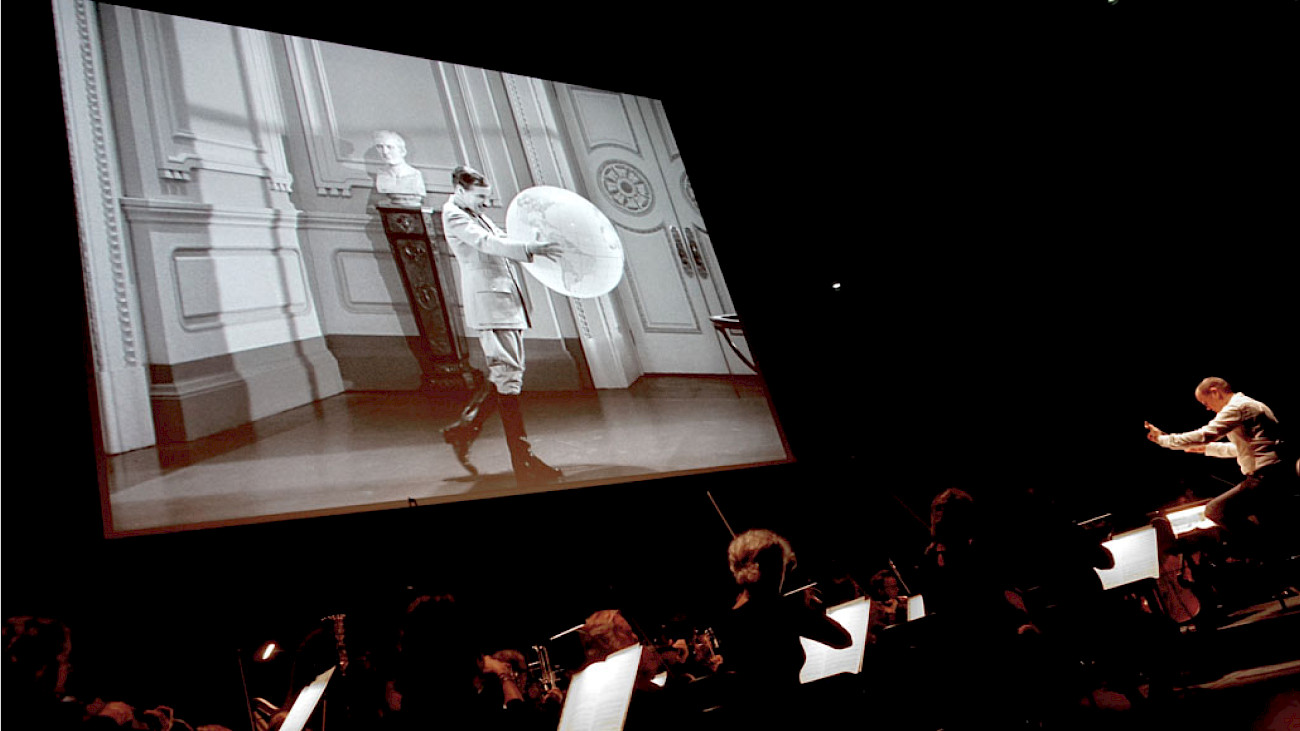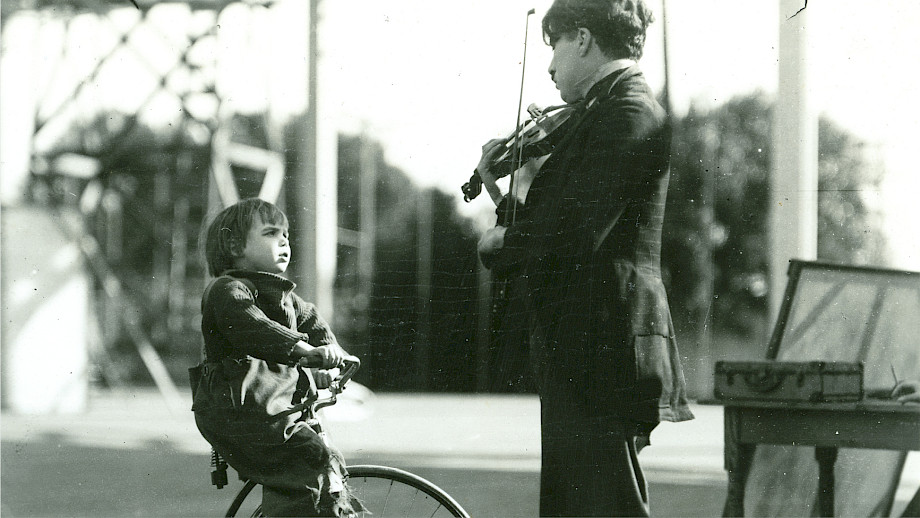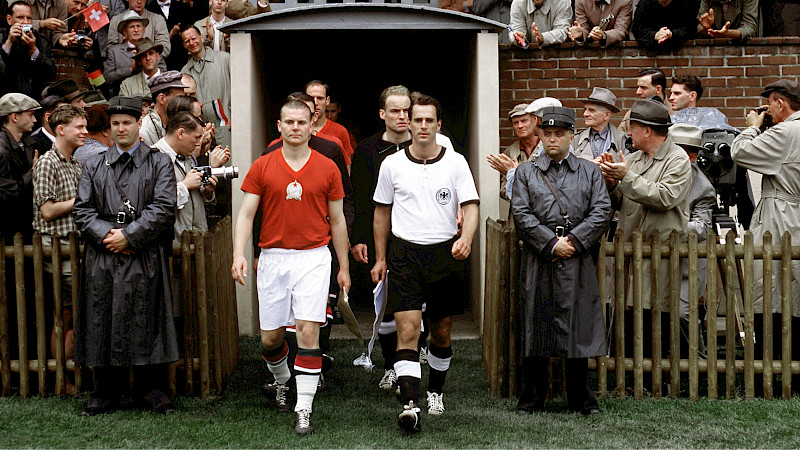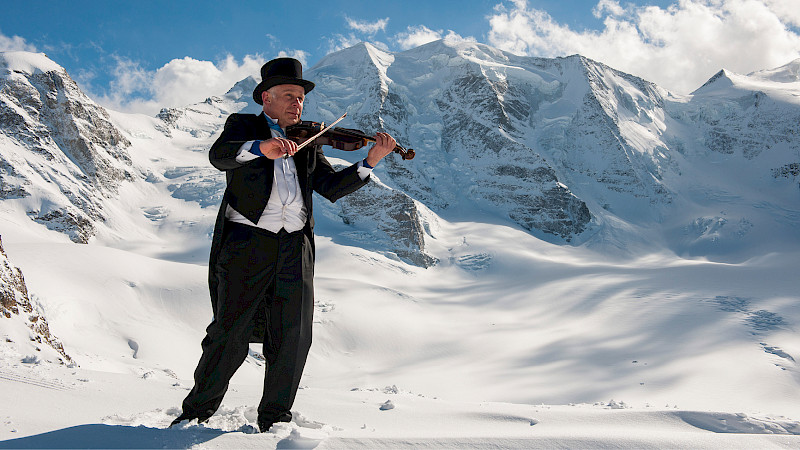
Why Chaplin Invented Elegant Music for «The Tramp»
Charlie Chaplin inspired generations as a tramp with a bowler hat, moustache, walking stick and a lot of irony. But his compositions are also an important part of his cinematic art.
Charlie Chaplin and Claude Debussy met in Paris in 1909 when Chaplin was on tour with Fred Karno's Music Hall Company. The young Yehudi Menuhin later accompanied the filming of «City Lights». And Arnold Schoenberg visited the film set of «Modern Times». In the USA, Chaplin received Rachmaninoff and Rubinstein at home. In Vevey, Isaac Stern, Rudolf Serkin, Pablo Casals and Clara Haskil were among his circle.
«Not a bad violinist»
Touring and theatre life, the sound of the music halls – Charles Spencer Chaplin junior had been born into this world in 1889. Both parents were singers and songwriters in London. But his childhood was also marked by poverty and stays in boarding schools for orphans and destitute children. His half-brother Sydney supported Chaplin, was a role model and brought him to the Karno Troupe, which also opened the world to music for him. And so, at 16, Chaplin bought himself a violin and a cello to accompany him on tour, and took lessons from whomever he could. Chaplin himself had a low opinion of himself: he could «pose well» with the cello, «but that's all». His companion Stan Laurel said of Chaplin the violinist that he practised «for hours»: «I wouldn't call him a good violinist, but he certainly wasn't a bad one.» He also played saxophone and piano.
The piano also helped him compose. Chaplin couldn't read music or take notes, but with the help of «the first three fingers of his right hand on the piano» and important partners like his arrangers, his musical ideas became reality. By 1916 at the latest, when he founded the Charlie Chaplin Music Publishing Company, he seems to have become more serious about music. Admittedly, as a publisher he ceased operations after a few weeks and only three printed copies sold. But from the 1920s onwards he supported the compilation of the music for his films «The Kid», «A Woman of Paris», «The Gold Rush» and «The Circus». Until the end, Chaplin shaped his cinematography through his music and composed almost 900 minutes of film music.
Candlelight and Limelight
Memories of Chaplin the composer have been preserved mainly in the memoirs of his companions. «At home, he would often turn out the lights after dinner and the family would listen to classical music by candlelight. He knew a lot about music,» recalls David Raksin, arranger of «Modern Times». It was during their work that the melody for «Smile» came about: «A little Puccini would fit well here,» Chaplin told Raksin. «It wasn't Puccini by any means, but you can clearly see what he meant. It had that kind of melodic, uncompromising expressiveness,» Raksin said. From 1954, Nat King Cole, Elvis Costello, Judy Garland, Barbra Streisand, Diana Ross, Michael Bolton and Michael Bublé made «Smile» a chart success.
Chaplin loved the works of Brahms, Wagner and Tchaikovsky – and let them become part of his own music. In his film autobiography «Limelight», a ballet solo based on Tchaikovsky is not to be missed. But he also refers to the beginnings when Chaplin appeared as a violin-playing street musician, a singing entertainer or a mime and clown. The dancing in the rhythm of his music and film scenes is perhaps what defines Chaplin's art – by far not only in the famous scene from «The Great Dictator», in which he as a barber shaves a customer exactly to the beat of Brahms' Hungarian Dance No. 5.
Klamauk and Counterpoint
Even if the unorthodox creation of his film scores was «the most laborious and difficult method» for his collaborators like Eric James: the result is astonishing. Chaplin succeeded in forming musical characters that cover great emotional fields of tension: satirical-comic, touching-passionate, melancholic-tragic – perhaps uniquely consistent in film history. This was precisely what Chaplin had in mind: «I tried to compose elegant and romantic music to frame my comedies in contrast to the character of the tramp. Because elegant music gave my comedies an emotional dimension. Musical arrangers rarely understood this. They wanted the music to be funny. But I explained to them that music is a counterpoint, of great grace and charm, to express feelings.» The great filmmaker and composer Charlie Chaplin succeeded in this like few others.
Translated with DeepL.com.






